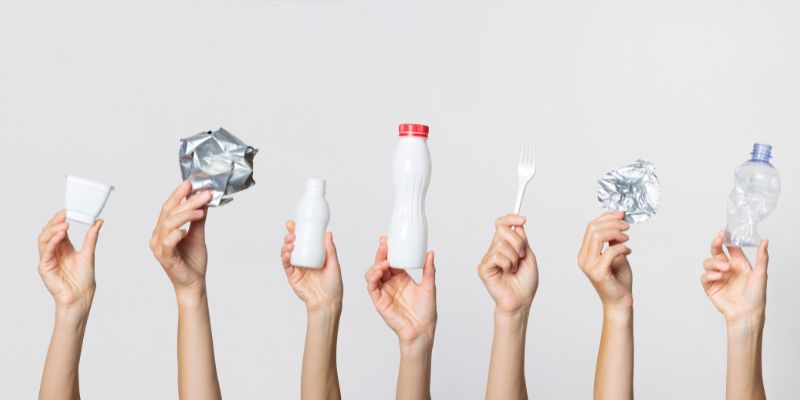A guide to recycling at home
Introduction
Recycling is difficult – there’s no doubt about that. There always seems to be ambiguous information about what can be recycled, how they need to be recycled, what actions we consumers need to take and arguably, whether our recyclables are actually recycled when they leave our homes.
It may seem straightforward, but it’s not
The trouble is, identifying what is and is not recyclable is only the first challenge.
Figuring out how to properly dispose of items that are made from a mixture of materials is confusing – and is actually a big problem with consumerism. Companies need to rethink and strategize their products and packaging to make it as easy as possible for consumers to understand how to dispose of it responsibly – something they rarely do. How can we be expected to do better if the brands we shop with don’t support us on our journey?
Another challenge is that each local authority in the UK does it slightly differently – and I don’t just mean having different coloured bins for different categories of waste. Local authorities have different capabilities and facilities when it comes to waste management. Some have very well-established recycling schemes and streams that can recycle a wide range of materials, whilst others simply don’t have the same resources or level of access, with quite a bit of development to do.
Luckily in general, the UK’s recycling system has come a long way in recent years, and is improving with each passing year.
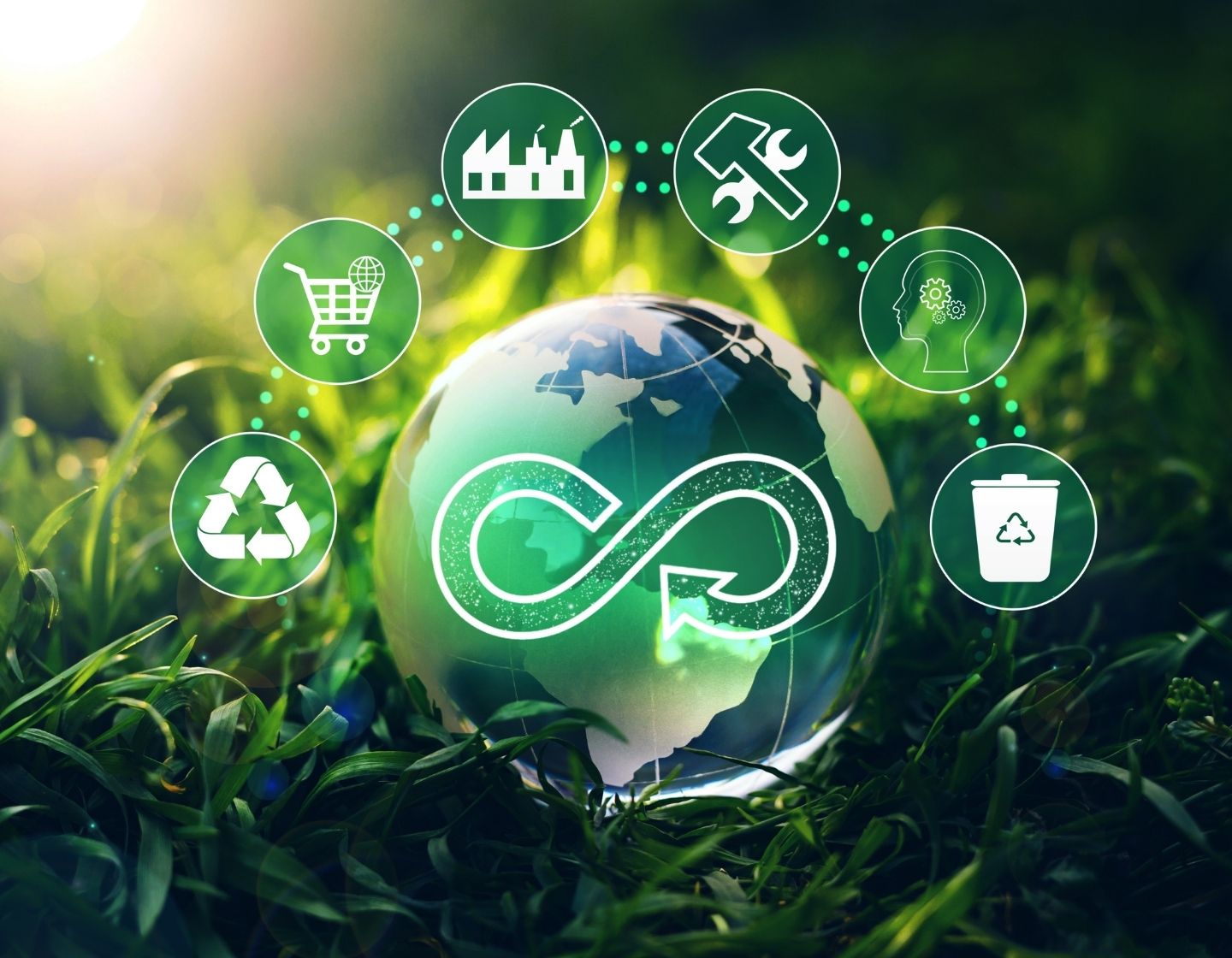
How does recycling work?
The question that everyone wants to ask, but no one will voice.
In this section we’ll provide some information on how to efficiently recycle, making sure you’re doing everything in your power to ensure the waste your household produces is disposed of properly. We also highlight several tools and services that help make the whole recycling process easier, and clearer to understand as well as guidance on how to recycle in the first place. But firstly, how does recycling work?
The Recycling Chain
- Disposing of waste into the recycling bin, whether public or your own at home.
- Waste collection – again either public or from your home.
- Sorting occurs at Material Recovery Facilities (MRFs), they separate the materials into streams like plastic, metals, glass, paper and cardboard. Once separated they are taken for reprocessing at specialist factories.
- Reprocessing is where the materials are washed and other materials are separated – namely adhesives, labels and other residues. They are then processed into a form that can be reused.
- Recycled – the materials produced from reprocessing are then sold for use in new products and materials.
It’s an imperfect system
Lots of materials and plastics are incompatible with one another, and so products you buy, use and recycle may not always make it through this whole process. It depends on the combinations of materials used to manufacture the products you buy (or the packaging they come in). These different materials and combinations can contaminate the recycling streams, which affects the quality of the recycled material being produced.
Think of it like loads of laundry.
You know that sinking feeling of dread when you realise you left the red football sock in with the whites load? Disaster, now everything is pink!
It’s a similar concept for recycling, contamination occurs when that “red sock” has snuck into the “white’s” load. The result is a material produced that is of lower quality, or not reusable quality.
These rogue “red socks” increase costs and can damage machinery, as well as contributing to more waste being incinerated or destined for landfill.
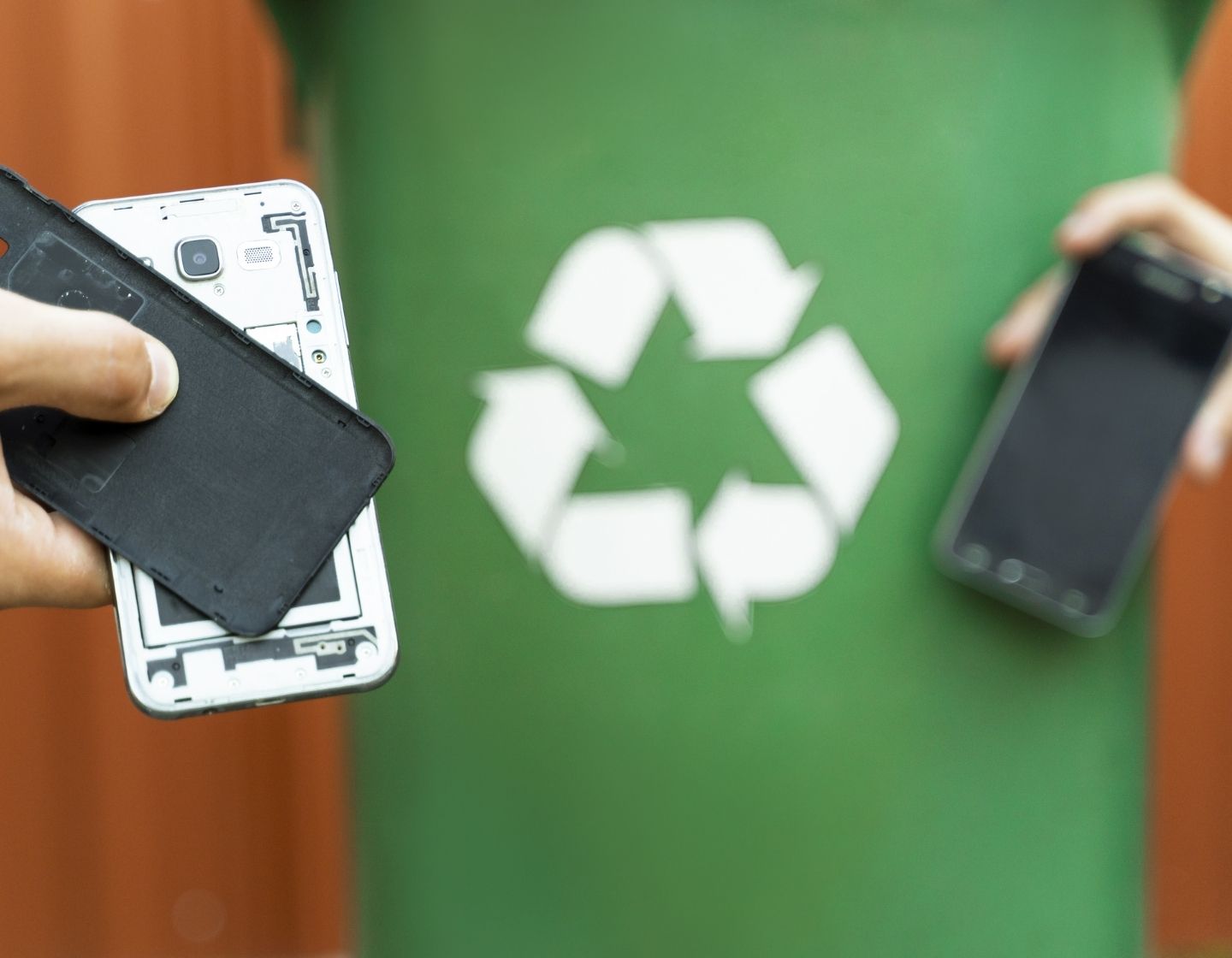
Do I need to wash items before recycling?
It’s easy to take for granted just how well-equipped the UK is for recycling. Local councils make it easy for us to place our recyclables in a separate bin to be collected on a regular basis. You take it out once a fortnight (or thereabouts) and boom, you don’t have to worry about it any more – out of sight out of mind.
However, incorrectly recycling something can cause big problems further down the line, and this includes not washing out your recycling properly.
Contamination
We’ve determined a few ways that contamination occurs in the recycling process, but one thing that is consistent across most of the UK is that recyclables need to be washed out.
If a piece of recycling is classed as contaminated, then there’s a risk of the below happening:
- Items are isolated from rest of recyclables which increases processing costs
- Entire recycling load is burnt for energy or sent to landfill
Now it’s highly unlikely that just one piece of unwashed plastic would cause the entire load to be rejected. But, remember our red sock in our very white laundry load?
Good – now, picture everyone in your town putting in one item into their recycling bin, an item that can’t be recycled in your local area. That’s like thousands or red socks in the pink would-be white laundry loads. Yikes.
Don’t the recycling facilities wash the waste before it is processed?
Yes, they do – but have you ever tried to wash last night’s plastic container that has dried sauce all over it? Takes a while, right? These wash cycles at the facilities are designed to fully cleanse before processing, and imagine how hard or costly that would be if no one as washing their recycling? We all have a responsibility to help the process rather than hinder it.
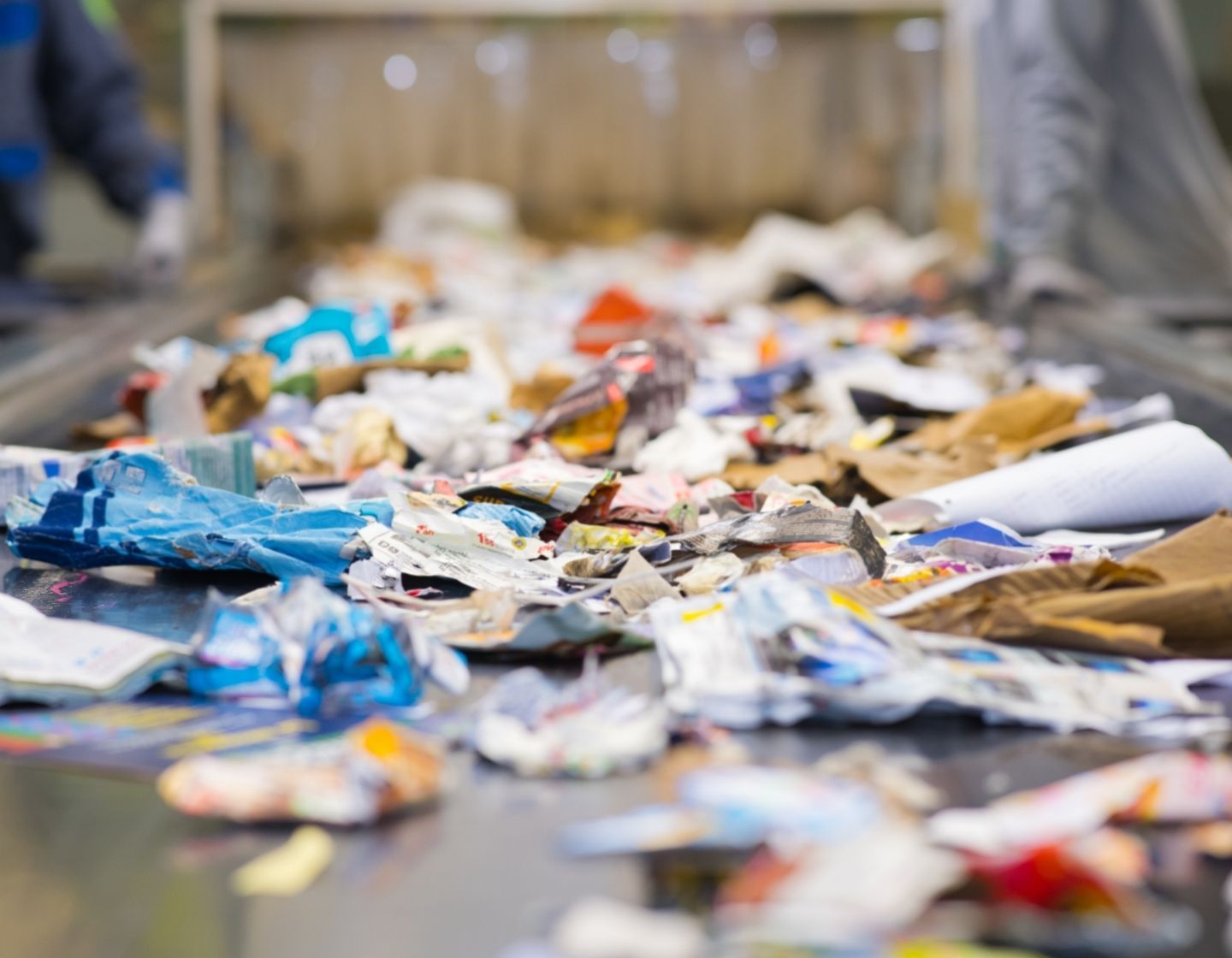
Washing without wasting water
There’s an argument that washing out items destined for the recycling bin would be a waste of water. However, it’s about the bigger picture – do you really want to see tonnes of good recyclables be turned away?
Rinsing out the recyclables in used dishwater won’t waste water.
Common contaminates
The items causing most of the issues in recycling centres are:
- Unwashed food containers
- Used nappies (seriously, don’t put those in recycling bins)
- Clothes and shoes
So, in short – yes you do need to wash or rinse out your recyclables before putting them into recycling.
What can be recycled?
It’s important to know what you can and can’t recycle in your area.
Now, despite the confusion with recycling properly, there are a wide range of items in and around your home that are recyclable at most if not all recycling centres in the UK. These are made from materials that are widely known as being recyclable – glass, cardboard, plastic drinks bottles.
However, there are other things in and around your home that you may have stopped yourself to think, is that recyclable? Well, here’s to helping you figure it out once and for all.
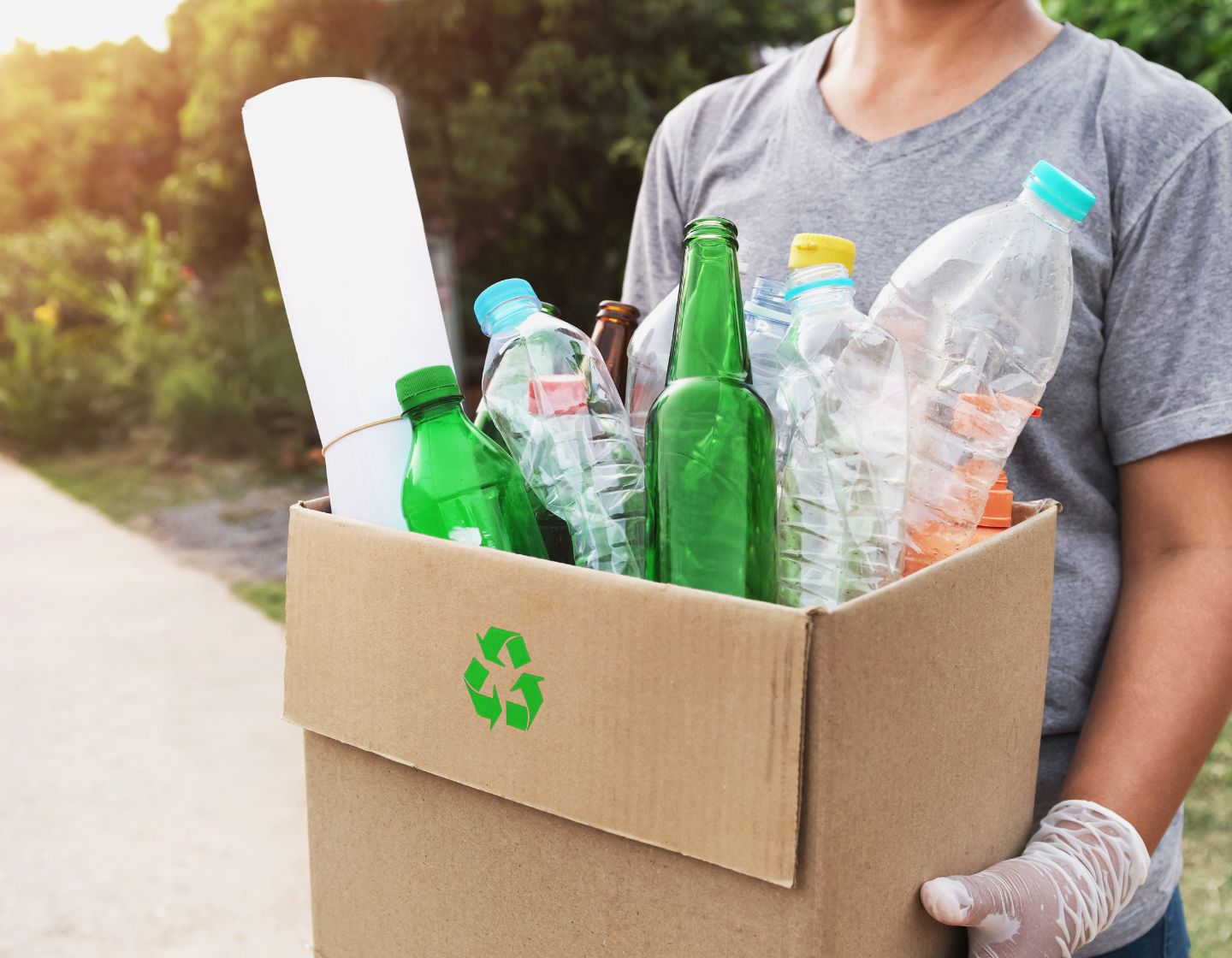
Kitchen recycling
Common recyclable kitchen items
- Washing-up liquid bottles
- Surface cleaner bottles
- Washing detergent and conditioner bottles
- Aerosols of air fresheners or furniture polish – ensure empty and remove plastic caps (recycle with plastics)
- Empty dishwasher tablet boxes and kitchen wrap boxes – flatten to save space in your recycling bin
- Kitchen foil or foil containers – once clean, make sure you crumple into a ball. The bigger the ball the better – but at least the size of an apple, so it can be detected by the machinery.
Common non-recyclable kitchen items
- Cling film
- Crisp packets
- Food and drink pouches that use laminated foil – like pet food pouches, coffee etc.
- Film lids from yoghurts and other similar pots
- Pre-prepared salad bags
- Packaging that doesn’t stay scrunched when you try and scrunch them
Bathroom recycling
Common recyclable bathroom items
- Toothpaste boxes and toilet roll tubes
- Plastic shampoo and conditioner bottles, lids on
- Shower gel containers, lids on
- Liquid soap bottles, remove the pump
- Bleach bottles – empty, (do not rinse) with the lid fastened
- Bathroom cleaners – rinse and replace the trigger spray
- Empty deodorant aerosols and hairspray
Common non-recyclable bathroom items
- Soap dispenser pumps
- Tissues
- Toothpaste tubes (brands are developing recyclable tubes however, be sure to check the packaging)
Electrical items
It’s easy to check if an electrical item, toy or game is recyclable if it reached the end of its working life. Simply ask the following questions:
- Does it have a plug?
- Does it use batteries?
- Does it need charging?
- Does it have a picture of a crossed-out wheelie bin on it?
If the answer is yes to any of these, it is recyclable.
Other household items that are recyclable:
- Magazines, catalogues and newspapers
- Envelopes
- Packaging from online shopping
Recycling do’s and recycling don’ts
Do
- Make sure all containers, bottles, tubes etc. have been emptied and washed – except for bleach bottles
- Replace lids and tops – if they stay on the container, they will get recycled
- Squash bottles to save space
- Leave on labels, unless the packaging says otherwise – these will be removed in the process
Don’t
- Put small scraps of unwashed foil in the recycling – wash them, and scrunch them into a ball, larger than an apple
- Leave tape on carboard boxes – this should be removed before the cardboard is recycled (unless it is recyclable tape)
- Recycle glass ovenware, Pyrex, drinking glass or ceramics into your home recycling bin – this will need to be taken to your local facility
- Recycle metal containers for chemicals or paints – check with your local recycling centre for how to recycle these.
Use trusted, online resources when trying to find out how to recycle
The service RecycleNow have a great index of items that can be recycled in the UK and it provides information on organisations that run recycling schemes for many hard-to-recycle materials like tools, white goods, paint and other equipment.
It also details how and where you can recycle other, more common materials through their helpful Recycling Locator tool – you can select what it is you’re trying to recycle from their list, enter in a location and it lists all the locations in your local or chosen area that recycles the materials you’ve selected.
Alternative recycling services
Another way to recycle difficult or unrecyclable materials is through a service called Terracycle. Terracycle run funded programmes that support and recycle common hard-to-recycle items like cosmetics, beauty waste, plastic packaging, pet food pouches, kitchen utensils, beverage capsules, eye wear, jewellery, shoes, pet toys, dining disposables and party supplies and even used gum and cigarette butts.
They offer Zero Waste Boxes for homes to buy, fill and send off to be recycled, but they also offer recycling programmes that allow members of the community, or local businesses and service providers to become members and set up “drop-off” locations for specific types or brands of products that Terracycle work with. Companies sponsor the recycling programme, and then across the UK people can sign up to join a recycling programme and become a drop-off location discoverable in the Terracycle location map and set opening hours.
For every full box sent back to Terracycle, they credit you with points. These points can be used and exchanged for donations to schools, charities, and other non-profit organisations of your choosing.
To find out more, simply enter your location on their homepage and you’ll be able to see a list of local programmes, and drop-off locations, or sign up to a specific programme.
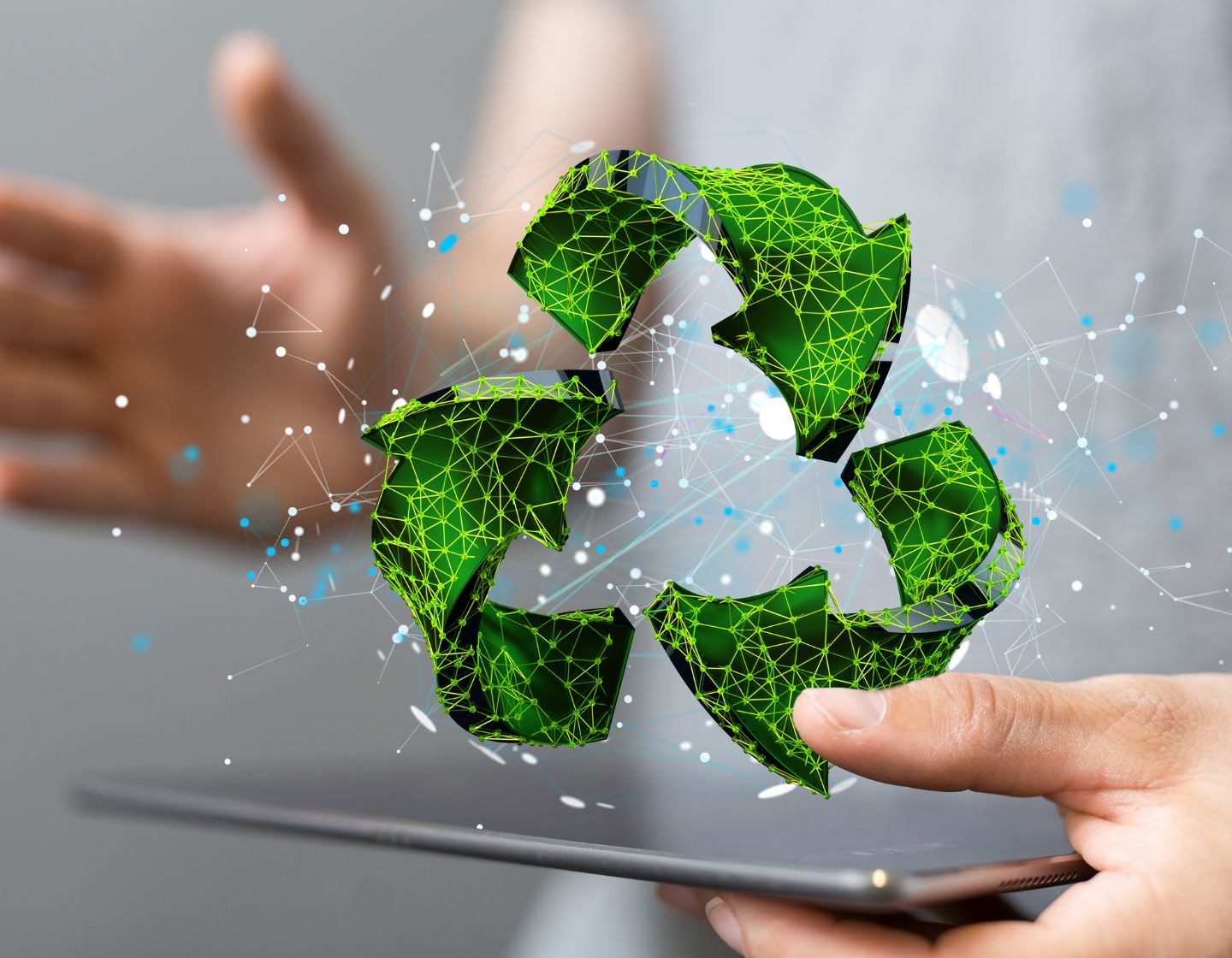
Conclusion
The three R’s, Reduce, Reuse, Recycle are everywhere. Despite innovative solutions, and great steps forward in the recycling industry, it’s becoming clearer that as the truth about the climate crisis spreads the third R cannot always be relied upon. Everyone must move away from consuming disposables, only using them where necessary.
Considering the journeys of the products and packaging that comes into your home is key – and whilst businesses and organisations are being called upon to take responsibility for the entire lifecycle of their products and packaging, it’s down to all of us to be conscious of our waste.

